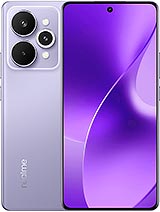Moto G06 Power alternatives
Tap above to see alternatives.
Oppo Reno14 alternatives
Tap above to see alternatives.
Moto G06 Power

Moto G06 Power
-
Helio G81
12 nm
-
7000 mAh
18W
-
6.88"
720 x 1640 pixels
-
50 MP
1080p@30fps
- Specs
Oppo Reno14

Oppo Reno14
-
Dimensity 8350
4 nm
-
6000 mAh
80W
-
6.59"
1256 x 2760 pixels
-
50 MP
4K@30/60fps
-
Specs

2x2.0 GHz Cortex-A75
6x1.7 GHz Cortex-A55
1x3.35 GHz Cortex-A715
3x3.20 GHz Cortex-A715
4x2.20 GHz Cortex-A510
12GB 256GB (UFS 3.1)
12GB 512GB (UFS 3.1)
f/1.8, (wide), PDAF
Sony LYT 600, f/1.8, 26mm (wide), 1/1.95", PDAF, OIS
50 MP
f/2.8, 80mm (telephoto), PDAF, OIS, 3.5x optical zoom, upto 120x Digital Zoom
8 MP
f/2.2, 15mm, 116˚ (ultrawide), 1/4.0", 1.12µm, AF
1080p@30/60/120fps
f/2.0, (wide), 1.12µm
f/2.0, 21mm (wide), 1/2.75", AF
1080p@30/60fps, gyro-EIS, HDR
SIM1: Nano, SIM2: eSIM
16 5G bands
n1, n2, n3, n5, n7, n8, n12, n20, n26, n28, n38, n40, n41, n66, n77, n78
In this performance comparison, the Oppo Reno14 with its Mediatek Dimensity 8350 (4nm) performs better than the Moto G06 Power with the Mediatek Helio G81 (12nm), thanks to superior chipset efficiency.
Oppo Reno14 offers 3 years of OS updates, while Moto G06 Power does not have confirmed OS update information. For security updates, Oppo Reno14 offers 4 years of support compared to Moto G06 Power's 2 years.
Oppo Reno14 features a superior AMOLED display, while Moto G06 Power comes with an LCD panel. Both smartphones offer the same 120 Hz refresh rate. Oppo Reno14 also boasts a brighter screen with 1200 nits of peak brightness, enhancing outdoor visibility. Notably, Oppo Reno14 offers a higher screen resolution, resulting in sharper visuals and more detailed content.
Moto G06 Power comes with a larger 7000 mAh battery, which may offer longer usage on a single charge. Oppo Reno14 also supports faster wired charging at 80W, compared to 18W on Moto G06 Power.
Oppo Reno14 offers better protection against water and dust with an IP69 rating.
- Oppo Reno14 – Check price here
¹ Scores can vary even with the same chipset due to RAM, thermals, and software optimization.










